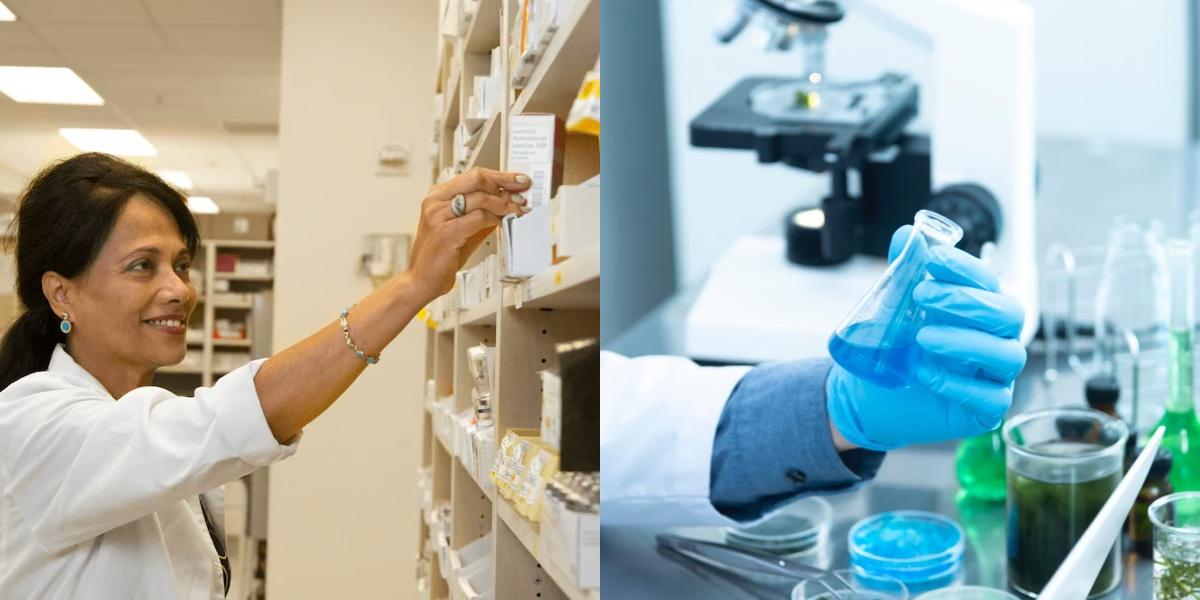Pharmacy Technician vs Sterile Processing Technician

Key Points:
- Pharmacy Technicians assist pharmacists; Sterile Processing Technicians prepare and sterilize medical equipment.
- Pharmacy Technicians typically earn higher wages than Sterile Processing Technicians.
- Pharmacy Technician roles are more widely available than Sterile Processing Technician positions.
- Both jobs require in-person training, but Pharmacy Technician programs may also offer online options.
- Pharmacy Technician training is generally more expensive and takes longer than Sterile Processing Technician training.
When it comes to choosing a career in the healthcare field, there are many options to consider. Two popular choices are pharmacy technician and sterile processing technician. While both professions are crucial in supporting the healthcare system, they have distinct roles and responsibilities. In this blog post, we will explore the differences between a pharmacy technician and a sterile processing technician, including their job descriptions, education and training requirements, and career outlook.
Pharmacy Technician vs Sterile Processing Technician: Career Outlook and Salary
When considering a career, it's important to also consider the job prospects and potential earnings. Here is an overview of the career outlook and salary for pharmacy technicians and sterile processing technicians:
Pharmacy Technician Career Outlook:
- According to the Bureau of Labor Statistics (BLS), employment of pharmacy technicians is projected to grow 4 percent from 2019 to 2029, about as fast as the average for all occupations.
- The demand for pharmacy technicians is expected to increase due to the aging population and the need for prescription medications.
- The median annual wage for pharmacy technicians was $34,020 in May 2020, with the highest 10 percent earning more than $49,130.
Sterile Processing Technician Career Outlook:
- According to the BLS, employment of sterile processing technicians is projected to grow 7 percent from 2019 to 2029, faster than the average for all occupations.
- The demand for sterile processing technicians is driven by the increasing number of surgical procedures and the need for properly sterilized instruments.
- The median annual wage for sterile processing technicians was $38,740 in May 2020, with the highest 10 percent earning more than $52,220.
Final Thoughts
Choosing a career as a pharmacy technician or a sterile processing technician can be a rewarding choice for individuals interested in the healthcare field. While both professions play essential roles in supporting patient care, they have distinct job duties and responsibilities. Consider your interests, skills, and career goals when deciding which path to pursue. Whether you choose to become a pharmacy technician or a sterile processing technician, both careers offer opportunities for growth and advancement in the healthcare industry.
Dreambound offers programs in multiple locations. For in-depth information on the intricacies of these two vocations, their prerequisites, and steps to join, explore the following blogs:

Fel is a student support representative who guides enrollees to the right program and answers their queries. She's committed to helping students and takes pride in her work. In her free time, she enjoys sightseeing and hanging out with loved ones.




